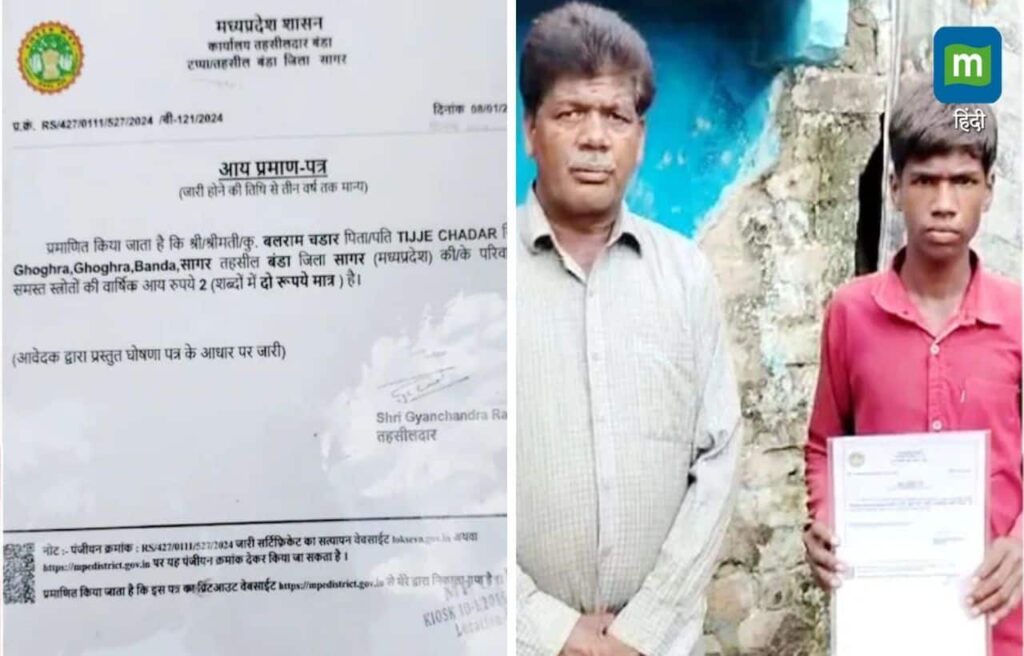In a startling revelation from the Sagar district of Madhya Pradesh, India, an incident has emerged that has captured the attention of both the media and the public. This case exposes a troubling reality concerning the transparency and diligence of officials within the region. The situation raises questions about accountability and governance, prompting a closer examination of the bureaucratic practices in the area.
Unraveling the Controversy
The scandal revolves around a particular certificate issued by local authorities, which has not only sparked outrage but also brought to light the lack of oversight in the administrative processes. The issuance of this certificate is viewed by many as a reflection of the systemic issues plaguing the bureaucracy, where there appears to be a disconnect between officials and the needs of the citizens they serve.
The Certificate: A Symbol of Mismanagement
This certificate, central to the controversy, showcases how local officials have been operating with apparent negligence towards their responsibilities. It underscores the notion that some bureaucrats may be turning a blind eye to the important duties they are entrusted with. The specifics of the certificate’s contents have led to questions regarding its authenticity and the motivations behind its issuance.
Public Reactions and Implications
The public reaction to this revelation has been one of disbelief and anger. Citizens are demanding accountability and more stringent regulations to ensure that such lapses in governance do not recur. Social media has amplified these voices, allowing for a broader discussion on the need for reform within the bureaucratic framework in Madhya Pradesh.
Political Ramifications
This incident could have significant political consequences as well, potentially affecting local governance structures. Officials who are found to be complicit or negligent risk losing their positions, and there may be calls for a wider investigation into the practices of bureaucrats across the district.
Potential Solutions for Bureaucratic Reforms
To address the systemic issues revealed by this case, several reforms could be proposed:
| Proposed Solution | Description |
|---|---|
| Enhanced Transparency | Implementing mandatory public disclosures for bureaucratic decisions to promote accountability. |
| Regular Audits | Conducting periodic audits of the issuance of certificates and licenses to ensure compliance and correctness. |
| Public Grievance Mechanism | Establishing a clear and accessible channel for citizens to report issues with bureaucratic processes. |
| Training Programs | Offering regular training sessions for officials to enhance their skills and understanding of public service responsibilities. |
Conclusion
The case from the Sagar district serves as a poignant reminder of the need for greater accountability within governmental institutions. As citizens increasingly demand transparency and efficiency from their officials, it becomes imperative for the administration to take immediate action to rectify existing issues. Only through substantive reforms can the trust between the public and bureaucracy be restored, ensuring that officials are better equipped to serve the needs of the people effectively and responsibly.
